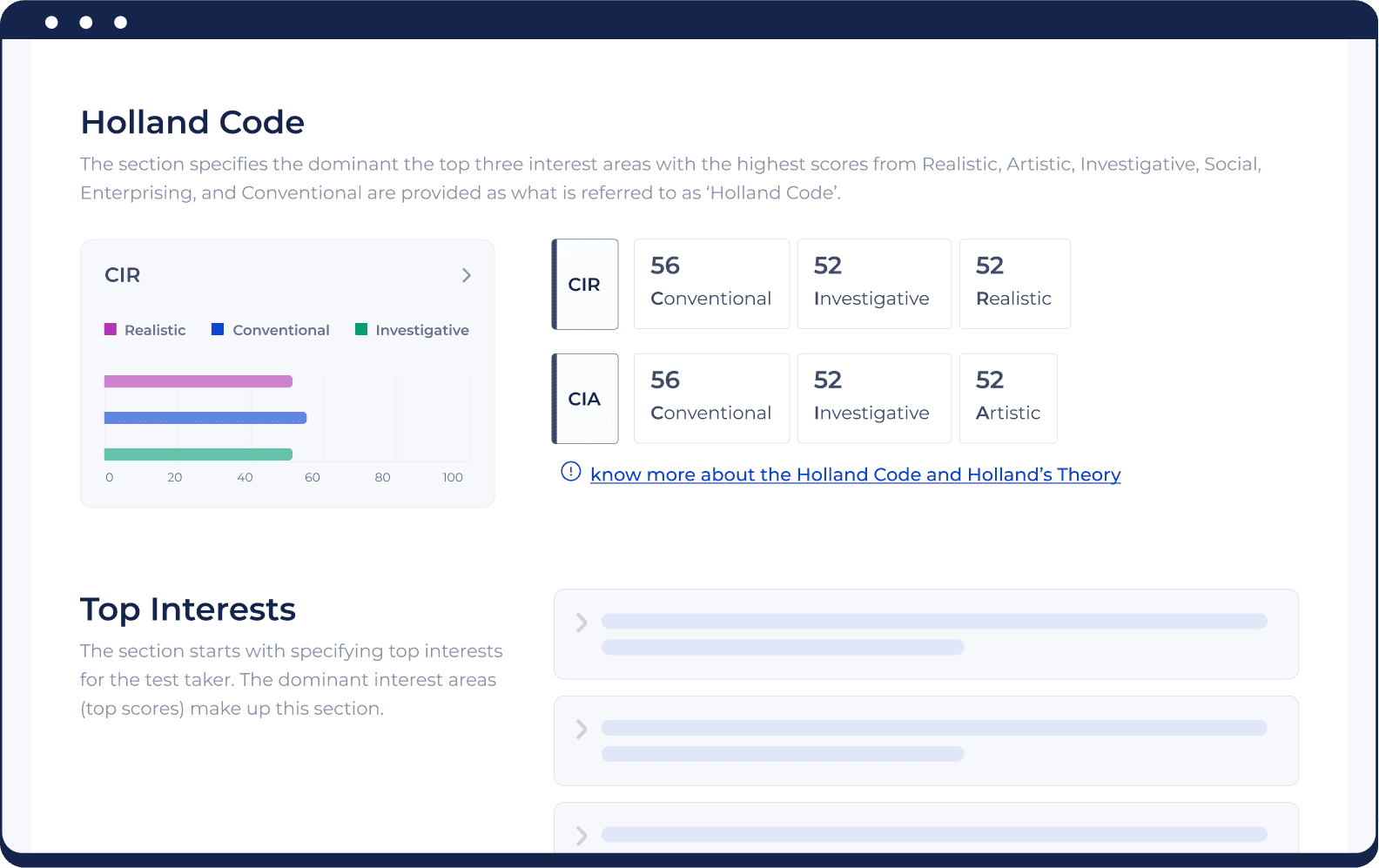Career Interest Assessment
An empirical interest assessment that uses the widely accepted RAISEC Model, identifying work-related interests across six personality types: Realistic, Investigative, Artistic, Social, Enterprising, and Conventional.

Individual Benefits for Professional Growth
Career Direction
Discover interests that match your personality for a satisfying career.
Career Choices
Understand your strengths and preferences to choose roles where you can thrive and grow.
Hidden Potential
Reveal untapped interests that could lead to fulfilling career opportunities you hadn’t considered.
Growth Plan
Use your interest profile to guide education, training, and future career decisions with clarity.
Why does your company need this?
Improved Performance
Employees in interest-aligned roles perform better and are more productive.
Reduced Turnover
Lower turnover as employees find roles matching their interests and work preferences.
Employee Development
Designs targeted training and development programs that match career interests.
Workforce Strategy
Informed long-term workforce planning by understanding the career aspirations of employees.
What we test
6 Interest Areas Tested
Realistic
Realistic refers to a preference for practical, hands-on activities and enjoy working with tools and machinery.
Artistic
Artistic represents creativity and originality and a preference for artistic and expressive activities.
Investigative
Investigative indicates a curiosity and analytical mindset, emphasizing a love for learning and problem-solving.
Social
Social emphasizes a preference for helping and teaching others, thriving in cooperative environments.
Enterprising
Enterprising indicates natural leaders who take risks and enjoy initiating projects.
Conventional
Conventional refers to a preference for structured tasks and working within established systems. It showcases the ability.
Behind The Scenes
The Science behind Our Career Interest Assessment
In Holland’s 1974 study of 989 male workers, 79% were in jobs matching their top Holland Code type. Although they changed jobs, they stayed within the same Holland Code job category Similarly, another study found that 72% of young men and 75% of young women change jobs within their Holland Code category, and this increases steadily with age reaching 91% of workers 65 years of age or older (Gottfredson, 2009). This strongly supports Holland’s theory and has been referred to as “continuity of careers”.
Built on Holland's refinement of career theory, this assessment decodes six universal personality types based on interests.
Explore Other Assessments
Explore Other
Assessments
Big 5 Personality Assessment
Assess essential workplace traits, validated to align with local standard. Generate powerful insights.
Cognitive
Assessment
Measure critical thinking, reasoning skills; identify training needs, and boost performance.
Digital Literacy Assessment
Test digital fluency: assess knowledge of the internet, security, and MS Office.

